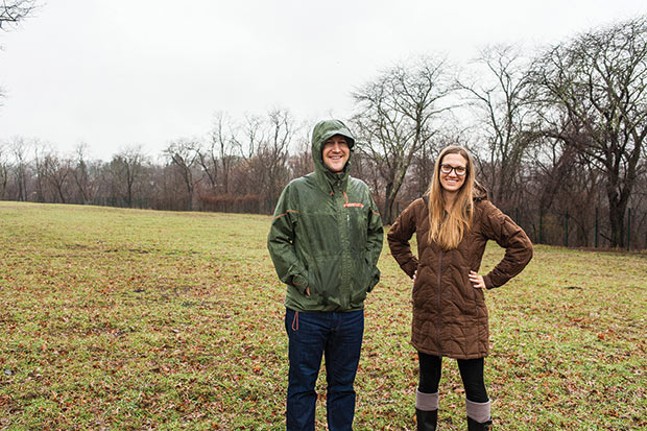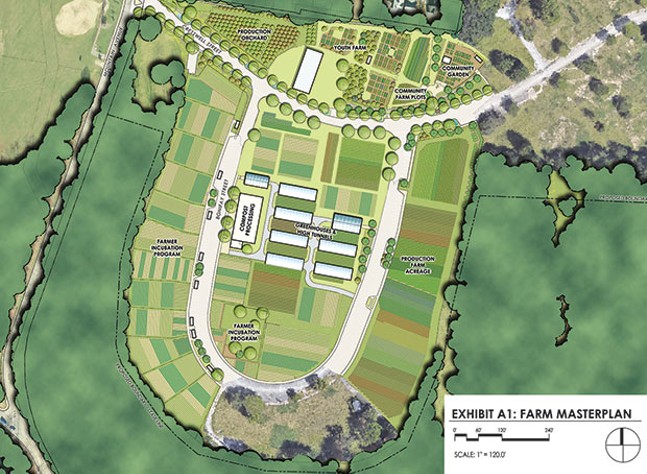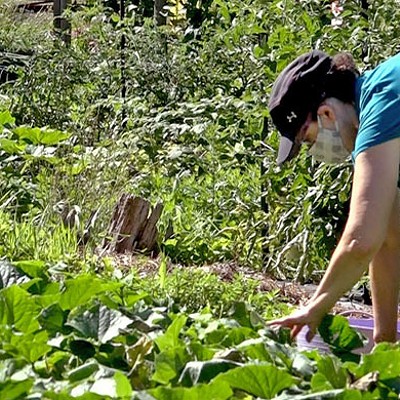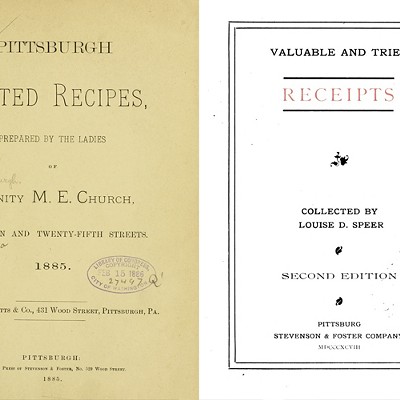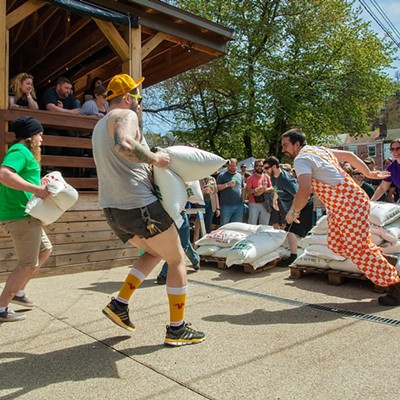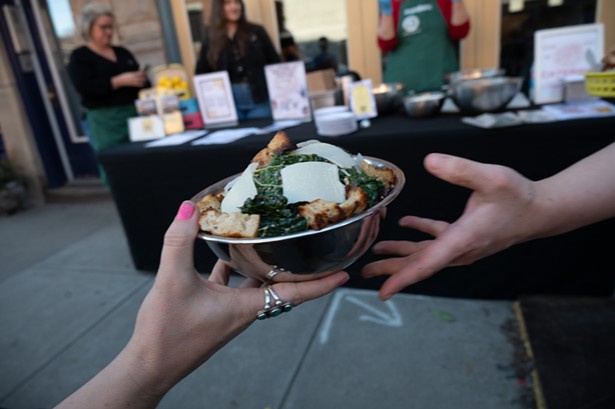After five years of collaboration and planning, the Hilltop Urban Farm Project is ready to come into full bloom this spring. “This year, it’s going to look like a farm, not just a field of dreams,” says Sarah Baxendell, the Hilltop Alliance’s project manager of greenspace asset development. “We’re just going to get down to kicking shovels into the ground and making the minute decisions.” Baxendell and Aaron Sukenik, the Hilltop Alliance’s executive director, are excited to welcome the public onto the farm for public work days through the fall, continuing their commitment to the hilltop community’s needs.
Hilltop Urban Farm is a project of the Hilltop Alliance, a body that serves the 11 southern hilltop Pittsburgh neighborhoods and the borough of Mount Oliver. The plan for the farm was drawn out of three large community meetings that took place in 2013 and 2014, in which a menu of urban-agriculture components was prioritized. The site sits on a hill, with the Pittsburgh public school Arlington Elementary across the road, and the Lighthouse Church perched on the slope above. These are two of the project’s neighborhood partners and eventual beneficiaries of community programming to be held on the property.
Last year, heavy preparation of the farm acreage began with tilling the soil and adding 23 truckloads of organic mushroom compost. Tilled areas are now becoming bright green with tiny plants, seeded as cover crops to help aerate the soil. Baxendell points out forage radishes, nicknamed “tillage radishes,” which break up the soil by growing roots that extend 8 to 14 inches. The roots then die off and leave holes that help the soil dry as the weather warms.
And warm weather means the beginning of this season’s main project: building the youth farm. “We want to start with our kids,” says Baxendell, pointing to a plateau where the youth farm will be. The area is over an acre and will eventually be surrounded by an 8-foot-high fence to keep the white-tailed deer out and kids safely in. Lighthouse Church hosts after-school programming for 35 children and summer programming for 150 children; Arlington Elementary has 363 kids enrolled. Both will send students to learn the five pillars of the farm’s youth-education goals: growing food, agricultural as a career pathway, nutrition, ecology of Western Pennsylvania and food systems.
To help build curriculum, the farm is partnered with Grow Pittsburgh, Allegheny Land Trust Education Department and Penn State Extension. Raised beds, classroom space, solar panels and shipping containers for storage are set to be put in this year.
“This August through April, i.e. next school year, our program manager for the youth farm and our program providers will be going into the school across the street and doing workshops with kids and trainings for the teachers,” says Baxendell. The goal is to create a comfortable transition for the kids and teachers to later utilize the farm for teaching. The youth farm will officially open in April 2019 for its first full growing season, with in-school, after-school and summer-camp programs.
Also in 2019, the build-out of the farmer-incubation program will begin. This is a workforce-training program for new farmers starting for-profit businesses. Quarter acres are set aside for each farmer, and successful applicants will have access to shipping containers, hoop houses, solar panels and coolers, all for a flat fee. Baxendell and Sukenik hope to open the program for applications in August 2019. This program is partnered with Penn State Extension, and participants will have access to its curriculum for new farmer training, designed to provide production, business-management, and planning experience. “The idea is that after three years on the site, they’ll be able to graduate off the site, and go on to launch new urban or rural farms in Western Pa., either in the city or on other preserved land in the county,” says Baxendell.
The future holds other initiatives, including pollinator gardens; community amenities such as gardening space and a farmers’ market; a production orchard to serve as a training tool on orchard management; and a food forest. A section has also been set aside for immigrant farmers, so they can grow food as a community. “We have a lot of Bhutanese, and now some Somali people in the area that we serve,” says Baxendell.
“The community engagement [now] is about building awareness of what this will be. Hopefully, people will take advantage of the opportunities like the incubator farm and the farmers’ market,” says Sukenik.
This year’s community work days are April 21, May 3 and 5, June 9, July 14, Aug. 11, Sept. 15 and Oct. 13. For more information on how you can get involved, visit Hilltop Urban Farm’s Facebook page at www.facebook.com/HilltopUrbanFarmPGH/.

